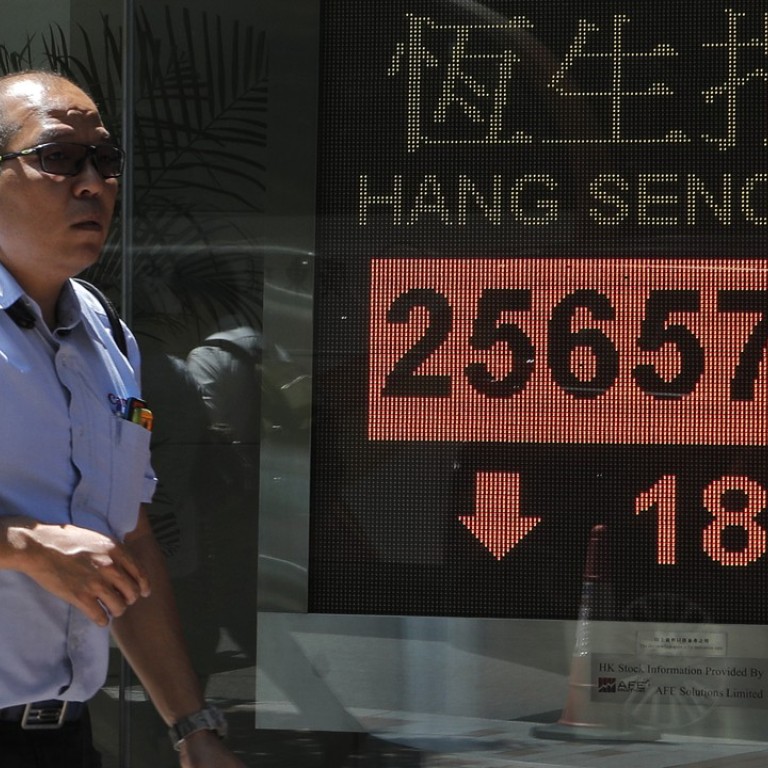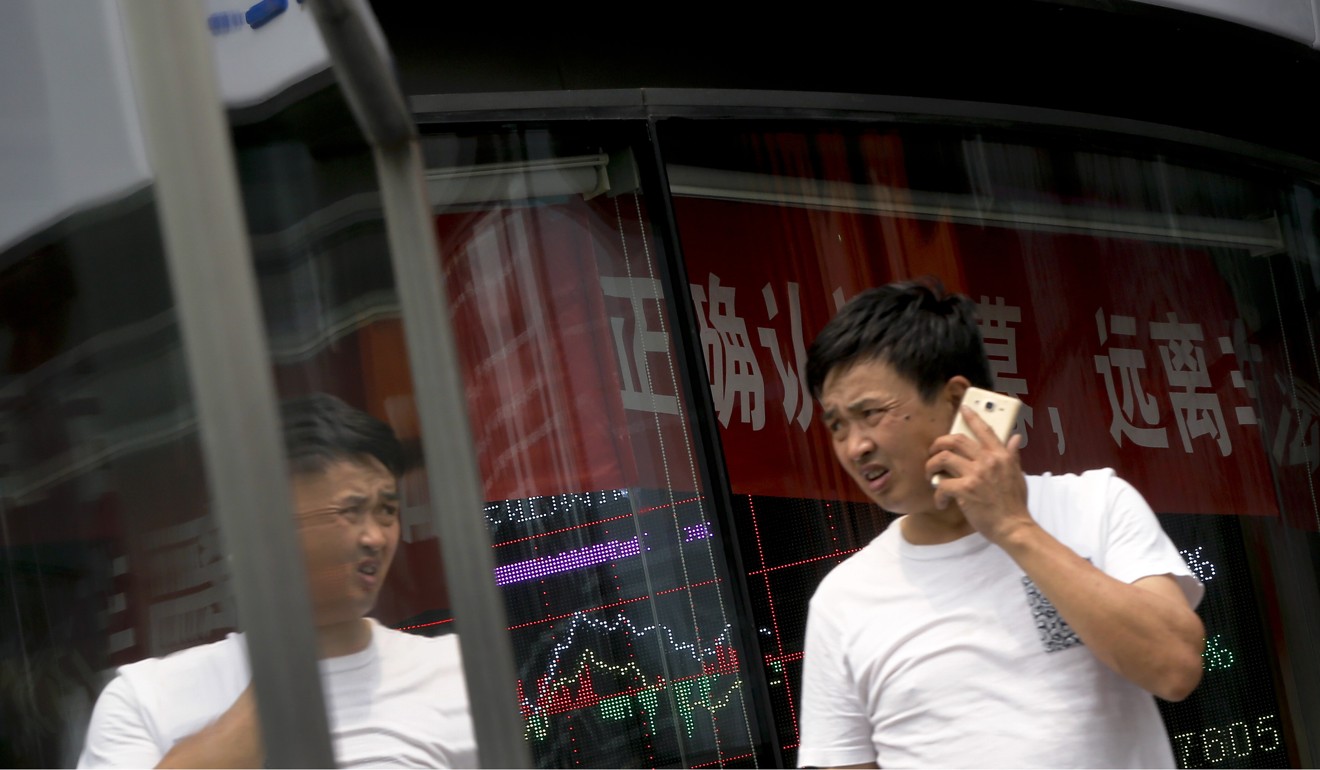
Hong Kong stocks drop most in two weeks to trim monthly gain as Tencent declines
Hong Kong stocks fell the most in two weeks on Friday, paring a monthly gain, on concern that global central banks will unwind loose monetary policies and as Tencent Holdings dropped on the back of renewed sell-off in US technology stocks overnight.
The Hang Seng Index retreated 0.8 per cent, or 200.84 points, to close at 25,764.58, trimming the gain to 0.4 per cent in June. The Hang Seng China Enterprises Index, which tracks the performance of selected Chinese companies listed in Hong Kong, lost 0.6 per cent, or 66.80 points, to 10,365.22. Mainland’s Shanghai Composite Index ended the day higher after an official gauge showed China’s manufacturing expanded for 11 straight months.
The Hang Seng Index has posted gains each month this year, as mainland investors bought the city’s stocks for cheap valuations and assets dominated in Hong Kong dollar, which is pegged to the US currency amid the greenback’s appreciation. Even after Friday’s loss, the gauge is still up 17 per cent this year.
“Southbound flows from mainland China were an important driver of Hong Kong stocks during the first half,” said Linus Yip, chief strategist for First Shanghai Securities, suggesting the flows were fuelled by expectations on the yuan’s depreciation and relatively low valuations of Hong Kong equities.
“We expect [southbound flows] to continue supporting the market for the rest of the year, while overseas capital might flow out as the US normalises its interest rates.”
Southbound flows from mainland China were an important driver of Hong Kong stocks during the first half
Tech shares retreated broadly on Friday. Chinese online major Tencent declined 1.7 per cent to HK$279.20. AAC Technologies, which supplies acoustic components to Apple, dropped 1.4 per cent to HK$97.60, while online game developer IGG tumbled 3.7 per cent to HK$12.04.
Banks posted significant losses as well. Local lender Bank of East Asia fell 1.3 per cent to HK$33.55 while rival Bank of China Hong Kong Holdings fell 2.4 per cent to HK$37.35. Banking giant HSBC dropped 0.2 per cent to HK$72.65 after surging 6.3 per cent a day earlier.
The woes in US technology stocks deepened as renewed selling in the year’s biggest winners sent software and chipmaker shares tumbling to the lowest levels in seven weeks.
The Nasdaq 100 Index sank to the lowest since mid-May on Thursday as tech remained a victim of investor rotation from growth to value stocks, suggesting that investors may be questioning the growth prospects in the world’s largest economy.
Investors are also concerned about the rise in interest rates globally, as a slew of hawkish comments from central banks signalled the beginning of the end of ultra-loose monetary policy.

On the mainland, the Shanghai Composite Index rose 0.1 per cent to 3,192.43 on Friday, capping a 2.4 per cent gain for the month. The large-cap CSI 300 Index slipped 0.1 per cent at 3,666.80. It has advanced 5 per cent in June, the best monthly performance since November, after MSCI decided to add 222 large Chinese companies to its benchmarks.
The Purchasing Managers’ Index rose 51.7 in June from 51.2 a month earlier, the statistics bureau said on Friday. That beat the market consensus estimate of 51. Reading above 50 indicates expansion and below that level means contraction.
For the first half the year, the CSI 300 has advanced 11 per cent while the ChiNext of smaller firms has slid 7.3 per cent, as investors shift to companies that are industry leaders and have low valuations.


